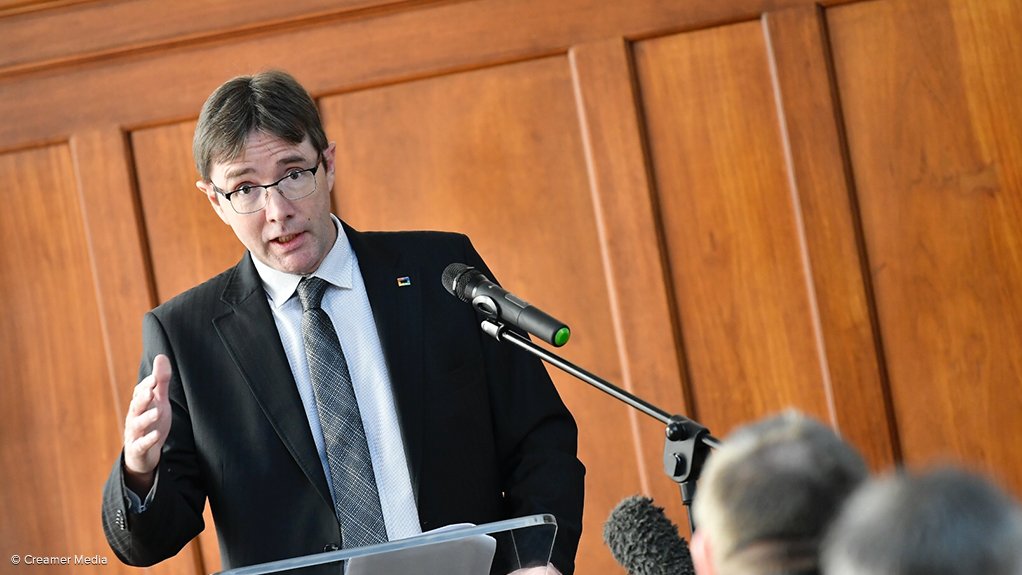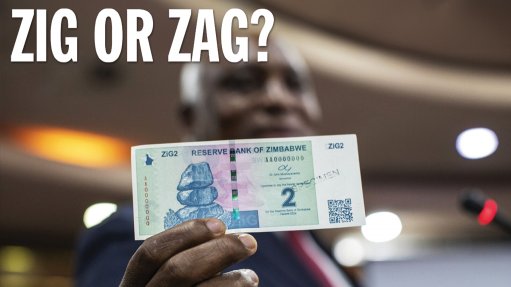Minerals Council calls for delay in Carbon Tax implementation
The Minerals Council South Africa has called for the implementation of the carbon tax to be delayed until all enabling regulations, and a legislative regime providing for a carbon budget, are in place.
It believes the timing of the implementation of the carbon tax “presents a major challenge”, particularly for the mining industry.
Additionally, the council said that, alongside the outstanding regulations, the pathways to investing in green energy “need to be clear” and that “the whole toolbox” should be capable of application.
Failure to do so exacerbates the regulatory uncertainty, which the council said, “materially undermines investment in the mining sector”.
A survey undertaken by the Minerals Council in August 2018, among 18 of the larger mining companies across the sector, confirmed the significant costs that would be incurred as a result of the introduction of the carbon tax, the statement elaborated.
It said that, across the companies surveyed, carbon tax costs were estimated at as much as R517-million a year in Phase 1 and, in the absence of the offsets allowed in Phase 1, the carbon tax liability for these 18 companies was estimated to increase to R5.5-billion a year in Phase 2.
CEO Roger Baxter confirmed that the Minerals Council “fully support South Africa’s commitment to reducing greenhouse-gas (GHG) emissions in line with the peak, plateau and decline trajectory and Nationally Determined Contributions under the Paris Agreement”.
He added that the council recognised the role of fossil fuels in climate change, and that “a shift to renewable energy sources is a global and national imperative”.
However, he lamented that the planned carbon tax - in the absence of any other climate change measures in the overall “toolbox”, which includes incentives and not only disincentives and necessary supporting regulation - was likely to be damaging to carbon intensive sectors with no pathways for offsets.
The “significant uncertainty” associated with Phase 2 of the implementation of the carbon tax would be materially negative for South African mining, he stated, particularly in the absence of any tax-free incentives.
“We believe the transition to a low-emissions economy should be balanced and supported by a competitive tax system which is critical for investment in capital intensive industries such as mining,” he further elaborated.
UNPACKING THE IMPACT
Meanwhile, the socioeconomic implication of the tax and regulatory uncertainty which negatively impacts on the competitiveness of the mining industry, remain significant concerns, the Minerals Council stated.
In the past decade, South Africa’s economy grew by an average of only 1.5% a year.
In turn, this has contributed to a continuous decline in GHG emissions per unit of gross domestic product, in a context where the composition of South Africa’s growth shifted away from carbon-intensive industries, like mining and manufacturing, towards less carbon-intensive sectors like financial services and retail.
Additionally, the 523% increase in the electricity price in the past decade, in materially damaging the competitiveness of the mining and smelting industries, further contributed to the decline in carbon-intensive sectors, according to the council.
“It is therefore highly likely that South Africa will achieve its Paris Agreement commitments without implementing measures such as a carbon tax,” the Minerals Council pointed out.
Instead, the Minerals Council proposed a “toolbox” of measures to mitigate climate change, adding that this should comprise both incentives and disincentives for behavioural change.
The Minerals Council, in the interim, said that it remained “extremely concerned about the implementation of carbon tax in isolation”, and in the absence of all the other parts of the “toolbox” that should be applied to mitigate climate change.
Delving into the carbon tax, in Phase 1, mining companies qualify for a 60% tax-free portion.
However, given that the regulations to enable the implementation of the performance allowance, carbon offset, carbon budget and trade exposure allowances are not finalised, the Minerals Council stated that “it is impossible to determine if mining companies will qualify for the remaining 35% tax-free portion”.
Based on this, the Minerals Council has said that, at this stage, it has “no other option” but to assume that mining companies will be liable for 40% of the R120/t of carbon dioxide (CO2) equivalent on Scope 1 emissions.
In Phase 2, the carbon tax would have risen to about R170/t of CO2 equivalent.
Mining companies are assuming that the full R170/t of CO2 will apply to scope 1 and 2 emissions. Applying these assumptions, the Minerals Council estimates that this will cost the mining industry more than R5.5-billion a year in carbon taxes.
According to the council, these challenges are then further exacerbated by the fact that mining companies that want to invest in renewable energy are faced with material regulatory hurdles, including the need to obtain Integrated Resources Plan 2010 exemptions and licences from the National Energy Regulator of South Africa, as well as reach agreement with Eskom on wheeling and transmission fees, and traverse a web of environmental authorisations.
Comments
Announcements
What's On
Subscribe to improve your user experience...
Option 1 (equivalent of R125 a month):
Receive a weekly copy of Creamer Media's Engineering News & Mining Weekly magazine
(print copy for those in South Africa and e-magazine for those outside of South Africa)
Receive daily email newsletters
Access to full search results
Access archive of magazine back copies
Access to Projects in Progress
Access to ONE Research Report of your choice in PDF format
Option 2 (equivalent of R375 a month):
All benefits from Option 1
PLUS
Access to Creamer Media's Research Channel Africa for ALL Research Reports, in PDF format, on various industrial and mining sectors
including Electricity; Water; Energy Transition; Hydrogen; Roads, Rail and Ports; Coal; Gold; Platinum; Battery Metals; etc.
Already a subscriber?
Forgotten your password?
Receive weekly copy of Creamer Media's Engineering News & Mining Weekly magazine (print copy for those in South Africa and e-magazine for those outside of South Africa)
➕
Recieve daily email newsletters
➕
Access to full search results
➕
Access archive of magazine back copies
➕
Access to Projects in Progress
➕
Access to ONE Research Report of your choice in PDF format
RESEARCH CHANNEL AFRICA
R4500 (equivalent of R375 a month)
SUBSCRIBEAll benefits from Option 1
➕
Access to Creamer Media's Research Channel Africa for ALL Research Reports on various industrial and mining sectors, in PDF format, including on:
Electricity
➕
Water
➕
Energy Transition
➕
Hydrogen
➕
Roads, Rail and Ports
➕
Coal
➕
Gold
➕
Platinum
➕
Battery Metals
➕
etc.
Receive all benefits from Option 1 or Option 2 delivered to numerous people at your company
➕
Multiple User names and Passwords for simultaneous log-ins
➕
Intranet integration access to all in your organisation





















